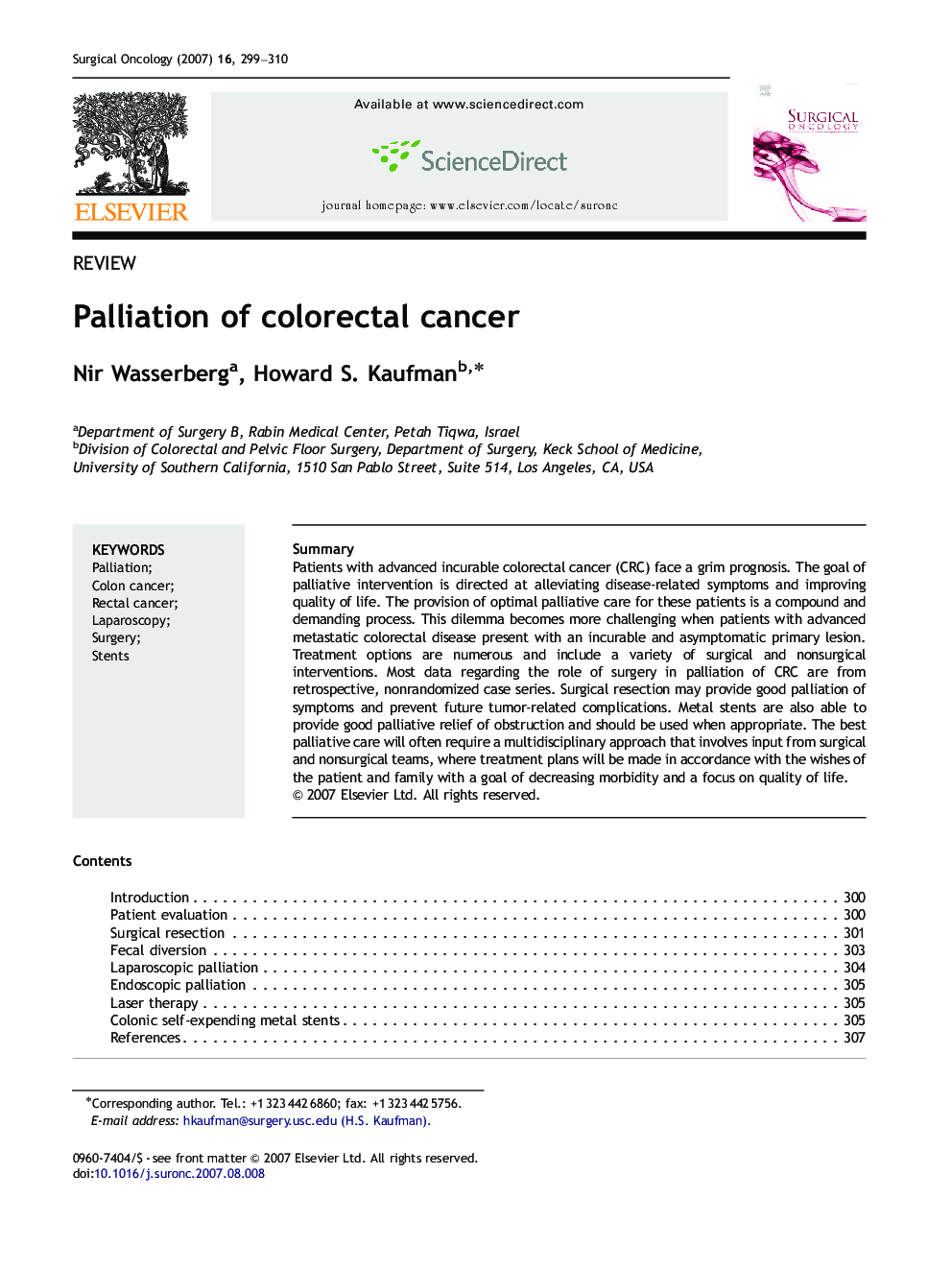| Article ID | Journal | Published Year | Pages | File Type |
|---|---|---|---|---|
| 3998275 | Surgical Oncology | 2007 | 12 Pages |
SummaryPatients with advanced incurable colorectal cancer (CRC) face a grim prognosis. The goal of palliative intervention is directed at alleviating disease-related symptoms and improving quality of life. The provision of optimal palliative care for these patients is a compound and demanding process. This dilemma becomes more challenging when patients with advanced metastatic colorectal disease present with an incurable and asymptomatic primary lesion. Treatment options are numerous and include a variety of surgical and nonsurgical interventions. Most data regarding the role of surgery in palliation of CRC are from retrospective, nonrandomized case series. Surgical resection may provide good palliation of symptoms and prevent future tumor-related complications. Metal stents are also able to provide good palliative relief of obstruction and should be used when appropriate. The best palliative care will often require a multidisciplinary approach that involves input from surgical and nonsurgical teams, where treatment plans will be made in accordance with the wishes of the patient and family with a goal of decreasing morbidity and a focus on quality of life.
